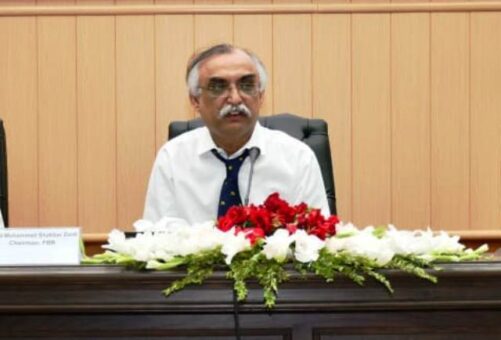KARACHI: Any auditor of professional accountancy firm is liable to penal action in case found guilty of misconduct in furnishing false tax certificate, sources in Federal Board of Revenue (FBR) said.
Referring to Section 8B of Sales Tax Act, 1990, the sources said that tax authorities allowed input tax adjustment to a taxpayer on the basis of certificate issued by auditors of professional accountancy firms.
“Any auditor found guilty of misconduct in furnishing the certificate mentioned in sub-section (2) shall be referred to the Council for disciplinary action under section 20D of Chartered Accountants, Ordinance, 1961,” according to Sales Tax Act, 1990.
Section 20D of Chartered Accountants Ordinance, 1961 explains:
“20-D. Orders by the Council if member found guilty.-(1) If, on receipt of the report under Section 20-B the Council is of opinion that the member of the Institute has been guilty of any professional misconduct specified in Schedule I, it may, after affording such member an opportunity of being heard, either personally or through counsel or another member of the Institute, make any of the following orders, namely:-
(a) Reprimand or warn such member;
(b) Impose such penalty as it may deem necessary not exceeding one thousand rupees; and
(c) Remove the name of such member from the Register for a period not exceeding five years:
Provided that, where it appears to the Council that the case is one in which the name of such member ought to be removed from the Register for a period exceeding five years or permanently, he shall not make any order but shall refer the case to the High Court with its recommendations thereon.
(2) If the Council is of opinion that the member of the Institute is guilty of a professional misconduct specified in Schedule II, it shall refer the case to the High Court with its recommendations thereon.
According to Section 8B of Sales Tax Act, 1990 taxpayers have not been allowed to adjust input tax except for some cases.
Following is Section 8B of the Act:
“8B. Adjustable input tax.– (1) Notwithstanding anything contained in this Act, in relation to a tax period, a registered person shall not be allowed to adjust input tax in excess of ninety per cent of the output tax for that tax period:
Provided that the restriction on the adjustment of input tax in excess of ninety percent of the output tax, shall not apply in case of fixed assets or Capital goods:
Provided further that the Board may by notification in the official Gazette, exclude any person or class of persons from the purview of sub-section (1).
(2) A registered person, subject to sub-section (1), may be allowed adjustment or refund of input tax not allowed under sub-section (1) subject to the following conditions, namely:–
(i) in the case of registered persons, whose accounts are subject to audit under the Companies Ordinance, 1984, upon furnishing a statement along with annual audited accounts, duly certified by the auditors, showing value additions less than the limit prescribed under sub-section (1) above; or
(ii) in case of other registered persons, subject to the conditions and restrictions as may be specified by the Board by notification in the official Gazette.
(3) The adjustment or refund of input tax mentioned in sub-sections (2), if any, shall be made on yearly basis in the second month following the end of the financial year of the registered person.
(4) Notwithstanding anything contained in sub-sections (1) and (2), the Board may, by notification in the official Gazette, prescribe any other limit of input tax adjustment for any person or class of persons.
(5) Any auditor found guilty of misconduct in furnishing the certificate mentioned in sub-section (2) shall be referred to the Council for disciplinary action under section 20D of Chartered Accountants, Ordinance, 1961 (X of 1961).
(6) In case a Tier-1 retailer does not integrate his retail outlet in the manner as prescribed under sub-section (9A) of section 3, during a tax period or part thereof, the adjustable input tax for whole of that tax period shall be reduced by 15 percent.”


